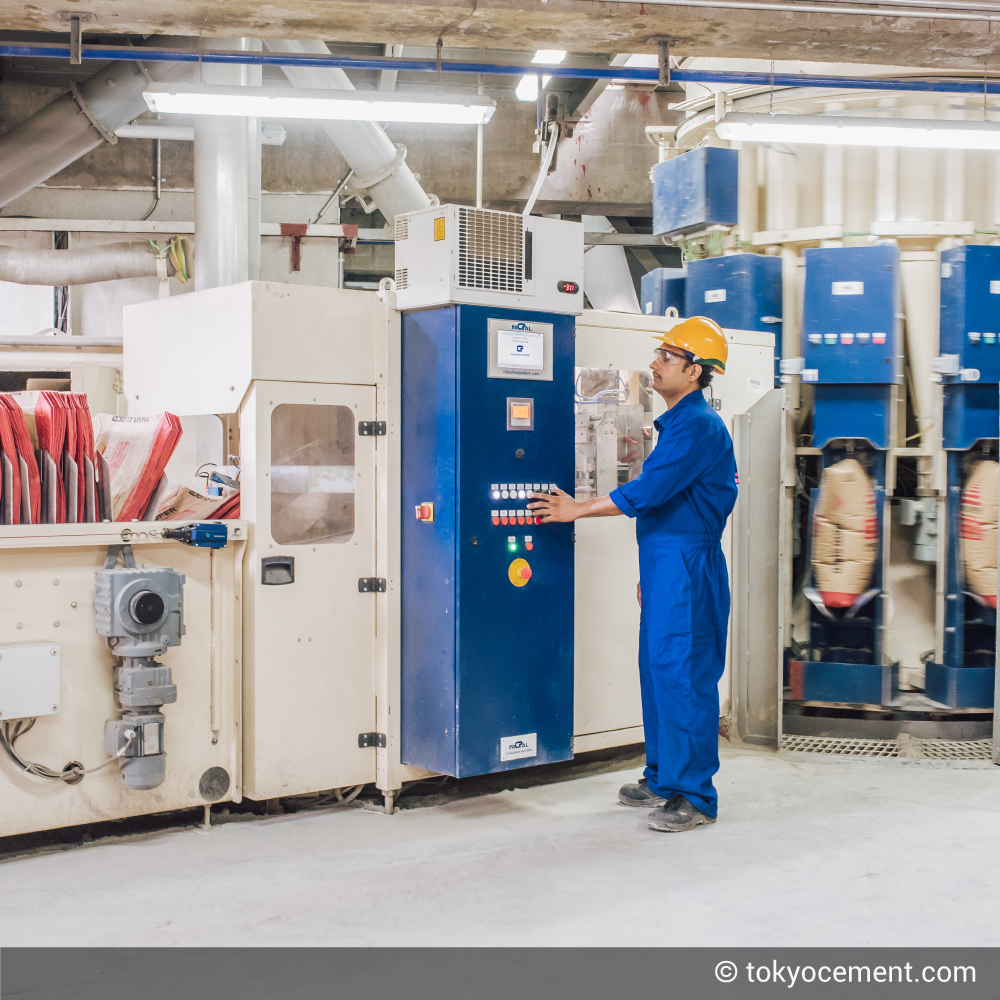 Quarterly Financial Review
Quarterly Financial Review
Tokyo Cement Group (Tokyo Cement) reported a turnover of Rs. 11,348 million (a 6% decline over the same period of the previous year) and a profit after tax of Rs. 193 million (a 65% decline over the same period of the previous year) for the 3rd quarter ended 31st December 2023.
Turnover for the 9 months ended 31st December 2023 was Rs. 36,679 million (a 13% decline over the same period of the previous year) and profit after tax for the same period was Rs. 1,700 million (a 60% decline over the same period of the previous year).
Deepening the impact of the wider national economic slowdown on the construction industry, cement consumption continued to decline during the quarter. The Maximum Retail Price of cement remained unchanged during the quarter as market competition intensified to maximize the share of a rapidly shrinking market.
The Economic Environment
The spending power of consumers contracted sharply during the quarter under review because of rising fuel, energy, and food costs. This was further exacerbated by the increase in VAT and Income Taxes on consumers. Both residential and business sector customers were impacted by the electricity tariff increase announced in mid-October.
The contraction of the construction sector was highlighted by the reduction of work on ongoing projects whilst only a very few new projects commenced during the latter part of the year. Construction firms were skeptical of any progress due to the concerns surrounding possible upward revision of material prices as a result of announced tax revisions.
The market shrinkage was further aggravated by the persistent adverse weather across most parts of the island. The impact of the inclement weather cannot be understated as it disrupted the construction industry and the distribution of construction materials to sites as monsoons lasted from August till December.
During the first review of the Extended Fund Facility arrangement, the IMF commended the government for its efforts to restore macroeconomic stability, reduce inflation, and willingness to establish growth-oriented structural reforms. This was followed by the disbursement of the second tranche of USD 337 million from the IMF in early December, in addition to the government receiving USD 200 million from the ADB and USD 250 million from the World Bank to strengthen budget support and enhance the country’s external buffers.
However, the VAT percentage increment from 15% to 18% and the expansion of the VAT liable goods and services list, which came into effect from the 1st of January will contribute to further increase fuel and transport costs for manufacturers. Reflecting this rise in cost of operations, the price of a 50kg bag of cement was increased by LKR 150/-, to bring the Maximum Retail Price (MRP) from LKR 2,300/- to LKR 2,450/-, with effect from the 1st of January 2024.
Outlook
In the short to medium term, the stabilisation of the currency should allow for commercial and private sector development projects to resume. However, domestic consumption is expected to recover only in the long term, due to reduced purchasing power, a weakened currency, and increases in utilities and taxes. The Group is currently observing some resumption of both private sector and institutional construction projects. In preparation to cater to the future growth in demand in the local construction industry, Tokyo Cement Group will continue the expansion plans currently underway to increase its local manufacturing capacity.
However, the escalation of tensions in the Middle East and continued conflict in Eastern Europe could pose a significant impact on fuel prices, supply chains and freight costs across the globe, which would have an impact on the cost of imports. Tokyo Cement has been vigilantly observing trends and actively forecasting costs to adapt to shifting conditions of the global economic environment. Whilst acknowledging the road to recovery is long and tenuous, the Tokyo Cement Group is confident of the fundamentals of its business operations and is cautiously optimistic of a steady revitalisation of the construction industry.

